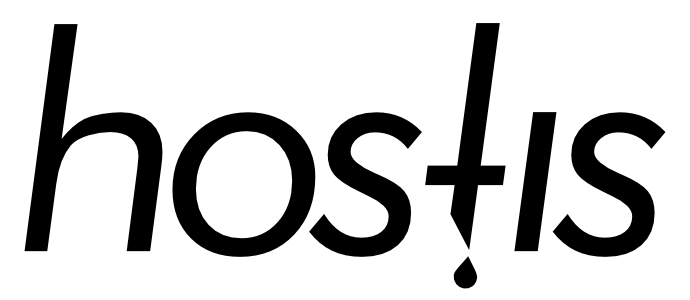Mary and Friends,
We were delighted to receive your reply. Vengeance is at the top of our list. We want nothing short of complete revenge against the patriarchs who brought us into the terrible world, full retribution for all of the humiliating rituals of society, and the total satisfaction of seeing our enemies defeated. You inspire us by showing just how queer our violence can be, for which we proudly call you comrades-in-arms.
In the first issue of our journal, we used Bash Back! as a cautionary tale in our defense of the politics of cruelty. Telling a modern version of the tale of Íkarus, we suggested that they could not help but fly too close to the sun and fell into the sea. We thought that they had tragically perished as a result. So you can imagine our elation at hearing that Bash Back! lives on underground – not with card-carrying members but according to the principles of an “Undying Passion for Criminality” also mentioned in the first issue.
Even with this fortunate news, we are not less concerned with the risk of burnout. We will grant them that our struggle originates in the battle against morality. Yet our anxiety about burnout remains of a metaphysical disagreement. Our original claim about Bash Back! ‘burning out’ must be understood against the backdrop of their vision of the world. For them, the universe is bursting at the seams with plentitude. In their world, such unending abundance is interrupted by tyrants, haters, and the repressed. The burnout walks their earth as a failure – someone who has resigned themselves to control by the forces that separate them from their own self-satisfaction.
Our biggest complaint about this worldview is its failure to realize that “a power that produces more than it represses” does not always bend in our favor. Foucault calls it disciplinary power, which was born out of the ascetic practices of priests and was quickly adopted by the military, hospitals, schools, and prisons. For us, the shining example is capitalism, as it epitomizes a social system in which the oppressors actively improve the capacities of the oppressed. The novelty of such systems is that they do not treat power as a scarce resource whereby one’s gain implies an other’s equal-opposite loss. In fact, capitalists enhance their own position by partially advancing the interests of those who work for them. On-the-job training, fringe benefits, and career advancement opportunities are not a lie – it is just that these forms of ‘expanded reproduction’ all favor the firm in the last instance.
Do not mistake our vigilance for pessimism about excess. We still believe in the old anarchist maxim that our desires are too big to fit inside their ballot boxes. That is to say, we remain partisans in the fight against economies of scarcity, the policing of bodies, and the paranoid accounting of representation. We are equally sure that excess is not enough to save us. It would be nice if all it took to live a life of resistance was to speak rudely, fuck loudly, and act with wild abandon on the path to transcending social norms of all kind. For us, a burnout is not someone who has ‘forgotten’ about those forms excess; rather, the burnout suffers from excessiveness. The life of the burnout active, even exhausting, because they ritualistically re-enact a defiance for any use whatsoever. They are the ultimate rebel without a cause. This is how anarchy can be a bodyspray, riots are the meaningless content of popular music videos, and communist chic appears as just another nostalgic fashion trend. Is there any potential in slick anarchist magazines, communist conceptual art, or queer dance parties? Perhaps, but only as it realizes a fundamental contradiction of our age: excess is simultaneously the condition of our liberation and the substance of our domination.
Given that power does not always favor the subjects it produces, we offer this point of contrast: Plan C remarked that we have moved from an era defined by boredom (1960’s) and into an era defined by anxiety (today). The burnout as danger is only exacerbated in a period where the generalized affective condition of individuals is an anxious one. We anxious subjects are flooded with stimuli, inundated with fragments of information from the world without the means for making those fragments meaningful. And in the era of Pharmacological control, Capital has found the means to turn a profit on the burnout. Our anxiety is turned into Xanax, our depression into Prozac. These lives are now a biochemically regulated existence that allows us to continue compromising ourselves every time we are called upon to hate ourselves – just a little bit more to get by just a little longer. In this state of affairs, the burnout is no longer simply a danger, but another site where pharmaco-capitalism exercises its control at the intimate level of bodies themselves. Given this situation, burning out does not simply mean subjective death; it is a source of value for those who oppress us. We are not chaste: do as many poppers as you please. In fact, we do not see such ‘metabolic rift’ as alienation from some natural long-lost existence. We want to experiment with chemistry within-against-and-beyond the value-form being written into our DNA. Such biochemical processes already bears fruit, but only as a poisoned gift for sabotaging the pharmaco-political system from the inside. So as potential burnouts ourselves, we interested in turning these bio-chemical commodities away from our own private anxieties toward their reason social causes.
In the end, we are not worried about queer vengeance being reactionary. We think that blackmail is an underappreciated art. Perhaps queer vengeance is often not reactionary enough – lacking the strength to defeat our enemies, not deep enough to rid ourselves of their systems of oppression, and without the persistence to destroy the world that they’ve created. Perhaps you can tell us a story where we win?
best,
The Editors
